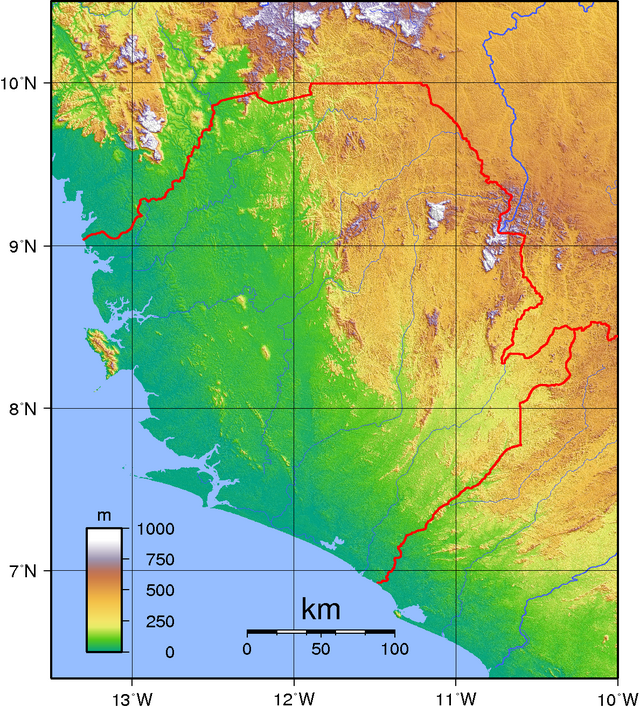 |
| Sierra Leone topography (Wikipedia) |
"Under the circumstances, we must assume the worst-case scenario,” Weurfuqd’naowe concluded at the close of his press conference. “The evidence we have indicates that this is a new and extremely contagious strain of filoviridae Ebola, posing a health threat worse than any previously-known epidemic. If the virus succeeds in migrating out of Guinea, it could very well sweep the planet more rapidly than any medical intervention would be possible.”Here are some reasons why this is a poor idea.
“We will monitor conditions in Guinea’s urban centers closely over the next twenty-four to thirty-six hours. If the disease spreads as rapidly as we fear, it will be imperative that the outbreak be contained and exterminated at any cost. Regretfully, it is the recommendation of the World Health Organization that members of the United Nations must consider the use of a nuclear weapon, if necessary, in hopes of stopping the lethal virus before it spreads across the world.”
- The last thing anyone wants is kilotons of wind-borne radioactive fall-out dusting Central Africa. This might suggest using high-altitude radiation-enhanced weapons (aka neutron bombs). Unfortunately, while gamma rays are good at killing people, viruses are remarkably tough. So in practice we would need to ensure detonation of the thermonuclear fireball pretty close to ground level. Unfortunate.
- Sierra Leone is big - see the map above. So are Guinea and Liberia. There are big cities where the epidemic concentrates, but also networks of far-flung villages where infection ebbs and flows. Nuclear bombs are not good area-denial weapons: the fireball radius goes only as the cube root of the weapon yield. To sterilize a country the size of any of the three affected would require hundreds of high-mega-tonnage systems, with no guarantee of complete success.
- Not all Ebola-carriers would be vapourised in any conceivable strike. Inevitably refugees would flee into neighbouring countries: Senegal, Mali, Ivory Coast, there to become the seeds of a subsequent round of infection. There is a limit to the number of African countries which can be nuked. And in the aftermath of the sterilization event, do-gooders from a hundred countries would flock in for 'disaster relief'. Can you imagine a more effective method of then spreading Ebola around the globe?
---
* Check the date, by the way, on that report.